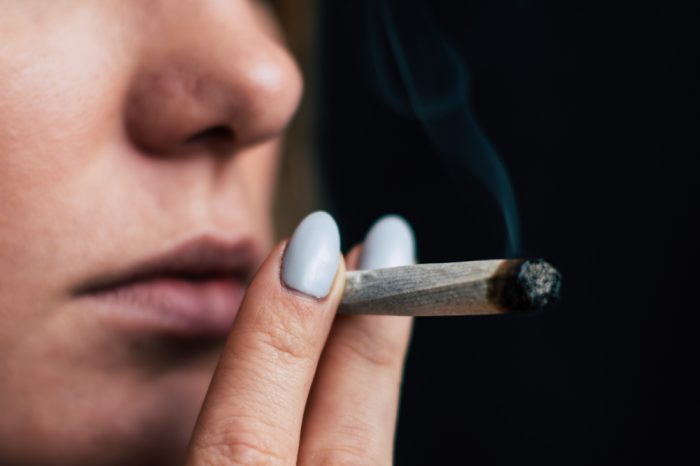Considering utilizing cannabis vs. exercise for stress and/or your overall health? Why choose one or the other?
The buzz surrounding cannabis and sports/exercise has often focused on pain relief and recovery, but research suggests that cannabis can be useful before and during exercise. By increasing concentration and stimulating motivation, cannabis can aid in helping people live more active and healthy lives. Cannabis vs. exercise for stress and overall health may no longer be up for debate.
Cannabis vs. Exercise for Stress – Similar Physiological Outcomes
The “runner’s high” is a common phenomenon experienced by long distance runners. For a long time, scientists believed that a release of endorphins was the trigger for “runner’s high”, giving the participant a happy boost. In 2015, researchers at the University of Heidelberg found reason to doubt this theory. When the researchers put mice on running wheels, they found that the mice were less anxious and happier, mimicking the well-known “runner’s high”. However, when the researchers blocked the animal’s endocannabinoid system, the mice remained anxious. This shows that “runners high” has more to do with the endocannabinoid system, and quite possibly cannabis, than previously thought. Could exercise and cannabis combine to possibly enhance this feeling, relieve stress, and promote good health?
Exercise: The ‘Magic Bullet’ for Health?
Researchers from Florida Atlantic University have concluded that regular physical exercise is the best comparison to a ‘magic bullet’ for tackling the worldwide epidemic of obesity and cardiovascular disease. There is irrefutable evidence of the effectiveness of regular physical exercise in the prevention of multiple chronic conditions.
There is also a linear relationship between physical activity and health status. Importantly, these health improvements are not limited to physical health. Physical exercise also has links with biochemical and physiological changes that can improve mental health. Multiple researchers have found physical activity to be an effective treatment in anxiety disorders, PTSD, and major depression. Unfortunately, very few people engage in the amount of physical activity required to gain health benefits.

World Health Organization Physical Activity Guidelines
The World Health Organization recommends that adults between the ages of eighteen and sixty-four participate in 150 minutes of moderate-intensity physical activity or seventy-five minutes of vigorous physical activity per week to receive health benefits from exercise. According to a report completed by the CDC’s National Center for Health Statistics (2018), only twenty three percent of U.S. adults are meeting that goal. For many people, exercise isn’t enjoyable, or is even painful. Motivation to be active is not always synonymous with an increasingly sedentary world. There are numerous strategies to help increase exercise motivation, from fitness goal trackers to smartphone apps. Interestingly, new research published in Frontiers in Public Health (2019) from the University of Colorado Boulder suggests that cannabis might be able to help.
Cannabis Consumption and Exercise Behavior
Researchers distributed an online survey to adults 21 years and older living in legal cannabis states. Its purpose was to examine attitudes and behaviors regarding cannabis consumption and exercise. The results showed that 81.7 percent of the sample endorsed consuming cannabis before or after exercise.
Furthermore, co-users (cannabis and exercise) participated in an average of forty-three more minutes of aerobic and thirty more minutes of anaerobic exercise per week compared to those who did not consume cannabis before or after exercise. Although there was not a non-cannabis consuming control group, it is interesting to note that both cannabis consuming populations in this study had a higher proportion of people (40.1 percent of co-users and 28.7 percent exercise only) meeting the WHO guidelines than the average American (twenty three percent).
These stats could be related to the fact that most co-users reported that cannabis enhanced their enjoyment of and recovery from exercise. Additionally, more than half of the co-users reported that cannabis increases their motivation to exercise. For people struggling with mental illnesses, exercise is essential, and a boost in motivation could make all the difference.
Mental Health and a Lack of Motivation
It is common for people who have depression to experience anxiety and vice versa. Those with depression often suffer from a lack of motivation. Although mental health experts emphasize the importance of exercise to increase motivation and therefore treat depression, motivation is a requirement to engage in exercise. The research out of the University of Colorado Boulder suggests that cannabis may help generate motivation to exercise. In turn this could then motivate people to conquer the rest of their lives. Furthermore, other research suggests that cannabis can help people concentrate on the exercise task at hand and forget about the stresses of every-day life.

Cannabis May Help You Focus on Exercise and Forget About Stress
There is a belief that several cannabis strains improve concentration. Unpublished research from Humboldt State University found that participants who consumed cannabis with exercise reported increased enjoyment. However, they also experienced a heightened state of focus, concentration, and mind-body awareness. While exercising, it can be easy to let your mind wander, especially when anxious or stressed. You might not find ‘consume cannabis’ on any list for “ways to calm your mind when you’re running,” but these reports suggest that cannabis could help you focus. One Canadian reported that cannabis “…helps me focus on slowing down on my (weight lifting) reps, focus on form and really engage my muscles.”
A Good Match
Incorporating cannabis into a healthy, active lifestyle is possible, and research suggests it can be beneficial. Cannabis increases motivation to, and enjoyment of, exercise. This leads to better physical and mental health outcomes.




